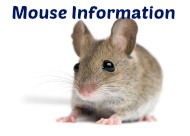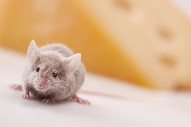
|
Mice are good-natured, inquisitive creatures that make great, inexpensive, low maintenance pets.
Diet - Offer a rodent specific pellet or block food. Avoid commercially available seed-based diets as they predispose your mouse to obesity and nutritional deficiencies. Supplement the diet with small amounts of fresh fruit (i.e. apples, bananas, and grapes) and raw vegetables. Contrary to popular belief, mice should avoid cheese as it is high in fat and rodents cannot tolerate large amounts of lactose. Provide filtered water in a water bottle. Housing - Provide the largest case possible for your pet mouse. Rodents are notorious chewers so cages of stainless steel, durable plastic, or wire are recommended. Provide enrichment in the form of tunnels, exercise wheels, and nest boxes. Provide ample nesting material and deep bedding for burrowing, resting, and to soak up urine. Select a clean, absorbent, non-toxic, and odor-free bedding. Handling - Mice may be tamed over a short span of time with gentle, regular handling. Most mice will approach a hand introduced into their cage and can be easily scooped in the palm. They may also be gently lifted by the tail and placed in a cupped hand. Veterinary Care - Mice can have parasites, tumors, mammary tumors, or abscesses from fighting. |



